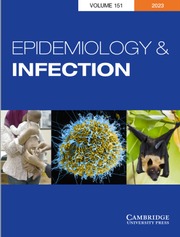Article contents
Studies in the declining birth-rate, the Midlands and London
Published online by Cambridge University Press: 15 May 2009
Extract
The variation in fertility between different sections of the London area has been, and in spite of the decline, still is, considerable. In London as a whole the birth-rate has fallen by 56 per cent since 1870–2, while the potential rate shows a decline of only 6 per cent. The fertility of the boroughs is highly correlated with the index of their social status. A higher birth-rate is recorded in the areas with a large proportion of unskilled or semi-skilled labour, a lower birth-rate in the areas with a high proportion of the professional and more affluent members of society. Other indices of relative poverty and wealth and hygienic conditions give a similar answer. The decline in fertility during the past 20 years is not sensibly related to these indices but appears in its rate to have been broadly equivalent throughout the area.
Information
- Type
- Research Article
- Information
- Copyright
- Copyright © Cambridge University Press 1937
- 2
- Cited by

